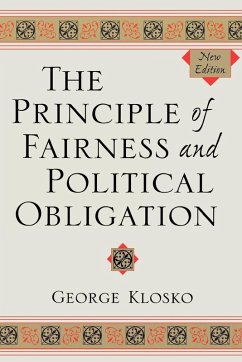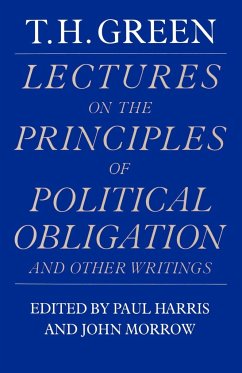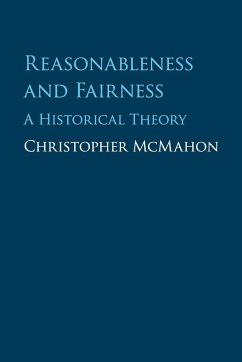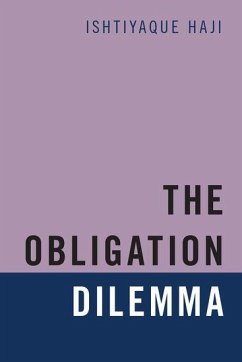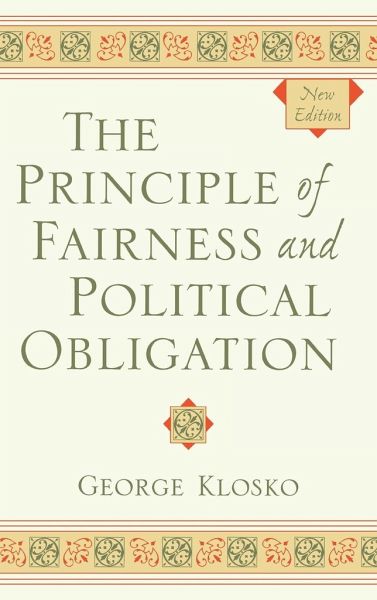
Principle of Fairness and Political Obligation
Versandkostenfrei!
Versandfertig in 1-2 Wochen
145,99 €
inkl. MwSt.
Weitere Ausgaben:

PAYBACK Punkte
73 °P sammeln!
In this now-classic work, he clearly and systematically formulates what others thought impossible_a principle of fairness that specifies a set of conditions which grounds existing political obligations and bridges the gap between the abstract accounts of political principles and the actual beliefs of political actors. Brought up-to-date with a new introduction, this new edition will be of great interest to all interested in political thought.





